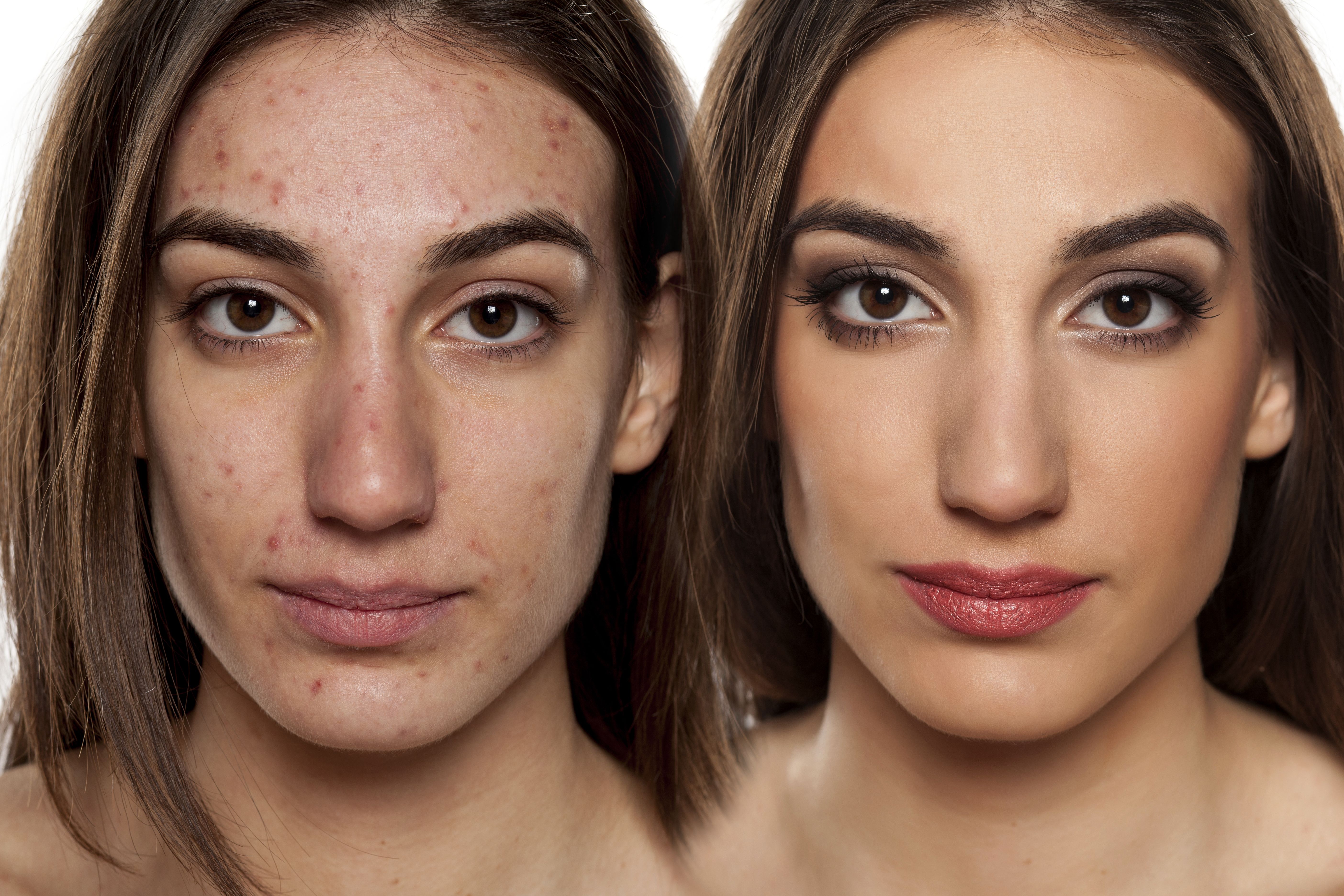
Expert Care For Acne
Most people develop acne– the most common skin condition — to some degree, but it primarily affects teenagers undergoing hormonal changes. Northwest Dermatology Group is your source for acne treatment in Bingham Farms and the surrounding areas.
Acne may be mild (a few, occasional pimples), moderate (inflammatory papules), or severe (nodules and cysts). Treatment depends on the severity of the condition.
What Causes Acne?
Acne is primarily a hormonal condition driven by male or ‘androgenic’ hormones, which typically become active during the teenage years. Sensitivity to such hormones, combined with bacteria on the skin, and fatty acids within oil glands, cause acne. Common sites for acne are the face, chest, shoulders, and back — the sites of oil glands.
Acne lesions include whiteheads, blackheads, small bumps, and nodules and cysts.
Though acne is essentially a normal physiologic occurrence, certain conditions may aggravate the condition, including:
- Fluctuating hormone levels around the time of menses (women)
- Manipulating (picking/prodding) acne lesions
- Clothing (for example, hats and sports helmets) and headgear
As experts in acne treatment, our dermatologists are able to prescribe the best possible treatment for your type of acne.
Schedule an appointment, and let us help you get started on your journey to clear skin.
Acne Treatment
Only three types of drugs have proven to be effective for the treatment of acne — benzoyl peroxide, retinoids, and antibiotics. Most people require at least one or two agents, depending on the severity of their acne.
- Benzoyl peroxide, available as an over-the-counter product (for example, Clearasil, Stridex) and by prescription (for example, Benoxyl, PanOxyl, Persagel), targets surface bacteria, which often aggravate acne. Irritation (dryness) is a common side effect.
- Retinoids (vitamin A derivatives), for example, Retin-A, Differin, Tazorac, treat blackheads and whiteheads, the first lesions of acne. The most common side effect is irritation.
- Antibiotics, either topically applied to the skin (clindamycin, erythromycin), or taken orally (tetracycline and its derivatives) control surface bacteria and reduce inflammation in the skin. Antibiotics are more effective when combined with benzoyl peroxide or retinoids. The oral retinoid isotretinoin is reserved for people with severe (nodular or cystic) disease. Isotretinoin shrinks the size of oil glands, the anatomic origin of acne. Without active, plump oil glands, acne actively diminishes. Side effects can include dry skin, elevated cholesterol and triglycerides, and birth defects. Women of childbearing age must practice birth control before, during, and after treatment (often a year) with isotretinoin. The use of isotretinoin requires rigorous testing (cholesterol, pregnancy) and follow-up for the prescribed period (5 months). It is reserved for the most severe types of acne that do not respond to other treatments.
- Hormone therapy may be helpful for some women with acne, especially for those with signs and symptoms (irregular periods, thinning hair) of androgen (male hormone) excess. The hormone therapy consists of low-dose estrogen and progesterone (birth control pills).
Acne Prevention
To prevent acne and reduce its damage to your skin, follow these tips.
- Choose a cleanser specially formulated for acne. These products often contain salicylic acid or benzoyl peroxide, which help to clear acne sores.
- Clean your face gently, as trauma to the acne breakouts may worsen the acne or cause scarring. When washing your face, use your hands, as any terrycloth or other scrubbing material may cause acne sores to rupture.
- If you need to use a moisturizer, use only light, noncomedogenic moisturizers, which do not aggravate acne. This type of product may be your best option.
- If you are a woman, use an oil-free foundation. Heavy makeup or other cosmetic products that block pores may cause a flare-up of acne.
